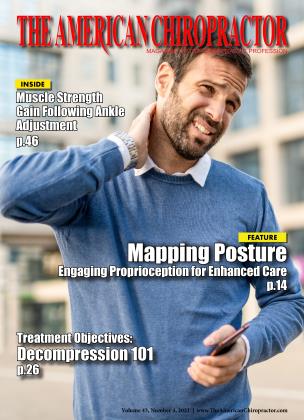In this decade of the COVID-19 pandemic, each of us is doing what we can to remain healthy. Wearing a mask, social distancing, and now receiving the vaccine are at the top of everyone’s list, or at least should be. However, most people are unaware of the most obvious enhancement to having strong immune function—diet and adequate digestion. The public has not been taught that digestive problems challenge our immune systems several times a day.
In fact, after reading that statement, you may be thinking of setting this article aside because it may be irrelevant to the issue at hand. If you continue to read, I can assure you I will make a very strong case for the most overlooked cause of compromised immune function in this modern day.
I recently purchased a very scholarly book titled Mayo Clinic on Digestive Health. The subtitle is How to Prevent and Treat Most Common Stomach and Gut Problems (Fourth Edition). It is well written and referenced and worth reading. It tells readers how important a healthy gut is and thoroughly outlines the gut microbiome and how to maintain it.
In one chapter, readers are taught the recipe for healthy digestion—what to eat, what to limit, eating habits, physical activity, medications, and understanding digestive diseases. Excellent information—what is there not to like?
The problem is the book leaves out the process of normal digestion, and that is what I would like to bring to your attention.
Normal digestion is taken for granted.
We assume that if we eat a healthy diet, we will remain healthy. That is only true if there is only one healthy diet and all of us are genetically identical. However, we know we are not. A healthy diet for me may not be easily digested and assimilated by you. Heredity plays a major role. I do not have to labor that point, but I wonder why nutritional science assumes we are.
When normal digestion does not happen, its consequences and restoration are ignored. It is common to cover up the symptoms of poor digestion with antacids, products to relieve the discomfort of abdominal gas, laxatives, and products that relieve diarrhea, none of which restore normal function! They do relieve symptoms, of course, but little attention is paid to the prevention of these occurrences.
Dietary selections and their digestion are critical in disease prevention. For example, cancer patients are placed on high-protein diets to maintain their white and red blood cell counts and immune function while undergoing chemotherapy and radiation. No attention is paid to whether the patient can digest such a diet, though. There is no test given, or widely known, to determine what diet would best enhance each patient’s chances of survival.
What Happens When Food is not Adequately Digested?
What happens when food is not adequately chewed and reduced in size to be utilized for energy production by the body? It may not be commonly appreciated, but digestion begins in the mouth. I know we do not keep food in our mouths long enough to complete digestion. However, if you chewed a piece of bread long enough, the digestive enzymes would release the sugars, and the sweet taste would be appreciated. Saliva dissolves some of the molecules in food that activate the mouth’s chemical receptors, giving rise to the sensation of taste.
The real purpose of chewing food thoroughly to break up large food particles into smaller particles is threefold. First, the salivary glands secrete mucus into the mouth, which moistens and lubricates food particles before swallowing so we don’t choke. Second, chewing exposes as much surface area as possible to the particles so our digestive enzymes can begin digestion when the food reaches the stomach.
"That is why many people do not eat salads— they cause gas and bloating if they are not thoroughly chewed."
If you believe that acid is present in the stomach when food reaches it, you are mistaken. The stretching of the stomach wall stimulates the production of stomach acid, and that takes an average of 45 minutes for young, healthy adults. As we reach our forties, that time interval lengthens and gradually gets longer as we age. So, do we consider whether we can produce adequate stomach acid to begin protein digestion for the diet we are eating? Unfortunately, the answer is no.
The third reason for chewing our food thoroughly is the enzymes in fresh fruits and vegetables (part of a perfect diet) contain cellulase. Cellulase is not made by the body and must be released by chewing to allow the body to digest soluble fiber. There are two types of fiber—soluble (can be made usable by the body by digestion) and insoluble (cannot be digested). The two types of fiber have different purposes for maintaining normal health. Raw high-fiber foods are covered with cellulose, which the body cannot digest. That is why many people do not eat salads; they cause gas and bloating if they are not thoroughly chewed.
This is the first article in a series of yet undetermined length. It is intended for your family members and patients. I invite your comments and questions and you can email me at [email protected].
Dr. Loomis has an extensive background in enzymes and enzyme supplements. He is the founder and president of the Food Enzyme Institute™. His extensive knowledge of physiology, biochemistry, and enzymology has made him a sought-after speaker and a prolific writer. The Food Enzyme Institute offers seminars to health care practitioners around the country. Dr. Loomis published ENZYMES: The Key to Health in 1999, The Enzyme Advantage: For Healthcare Providers and People Who Care About Their Health in 2015, and The Enzyme Advantage for Women in 2016. Most recently, in 2019, Dr. Loomis published What is Your Nutritional Deficiency?: Find It, Fix It, and Feel Better/. Contact info: 478 Commerce Drive Suite 201, Madison, Wl 53719, [email protected], 800-662-2630.
 View Full Issue
View Full Issue






